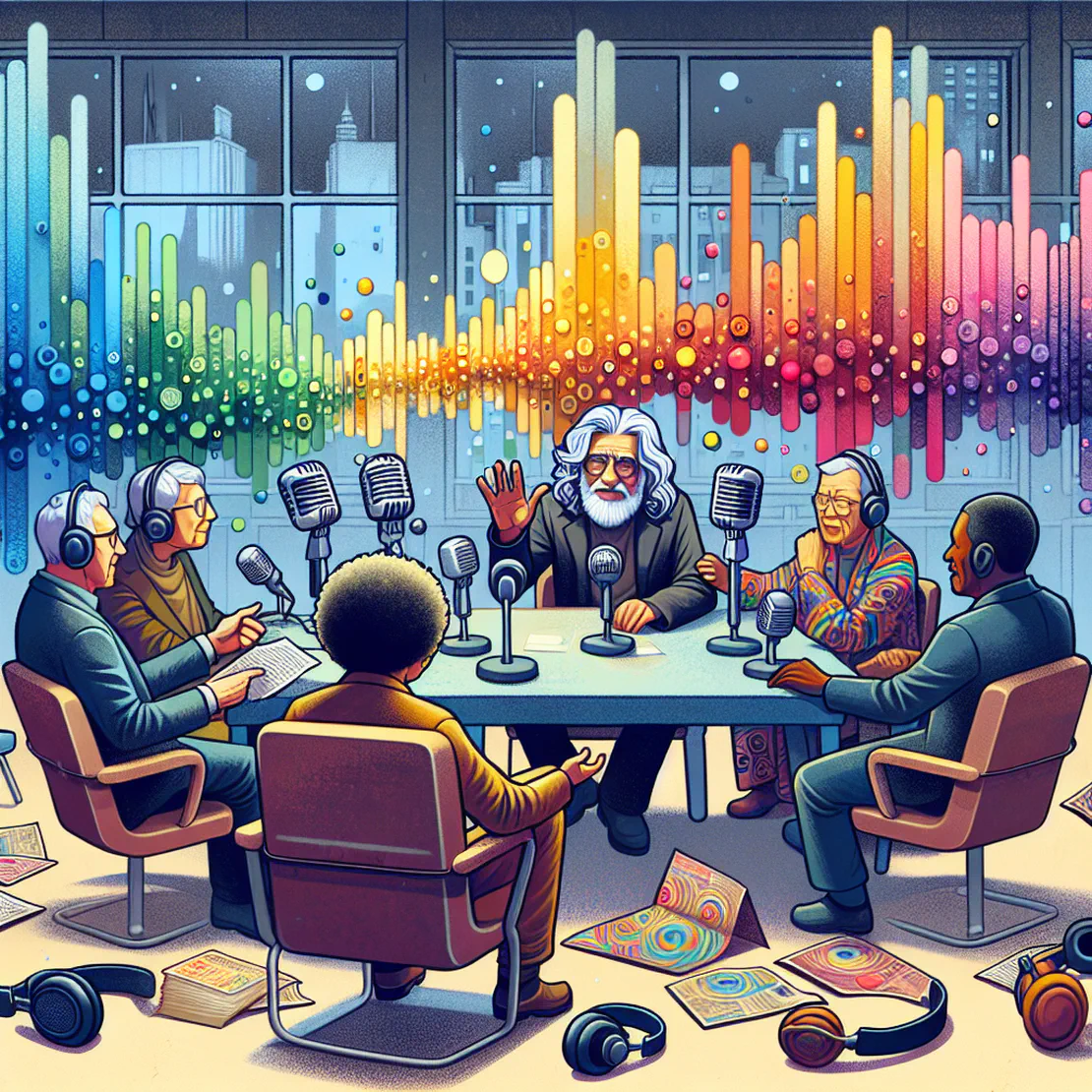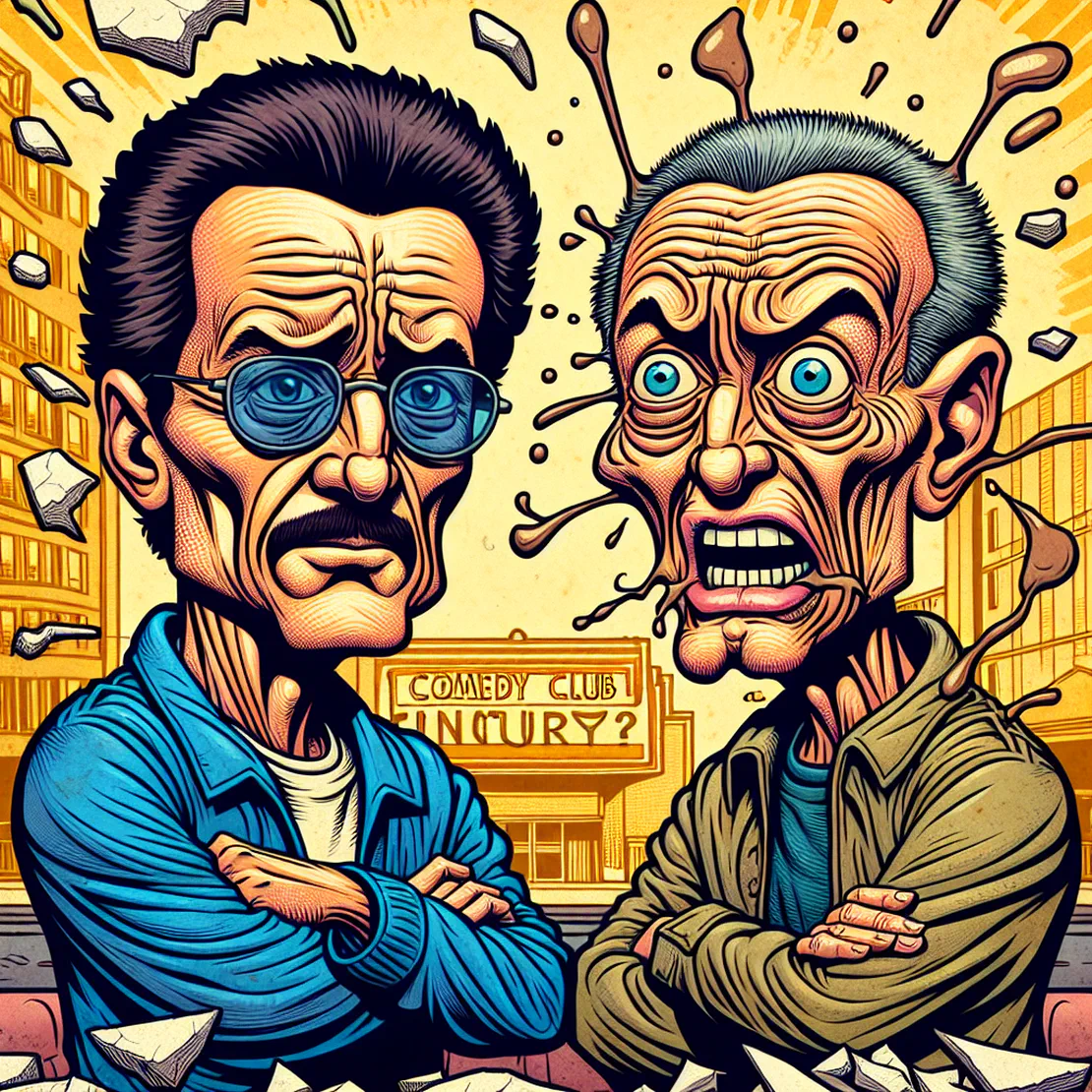
Howard Stern
Table of Contents
At a Glance
-
Innovation in Radio - ‘The old format of radio is gone.’ Howard Stern discusses the evolution of his radio career and the shift from traditional radio to satellite radio, emphasizing the freedom it brought him in conducting interviews.
-
Regrets with Robin Williams - ‘I have regrets that, yeah, the format helped me to evolve.’ Stern expresses regret about his past radio interview style, particularly with guests like Robin Williams, highlighting his personal and professional growth.
-
Change in Interview Style - ‘I could sit and have a real conversation.’ Howard reflects on how his style has changed to more in-depth, long-form interviews, which allows for more genuine interactions.
-
Discussion about Long Interviews with Jimmy Fallon - ‘I do wish that I could do a longer interview with certain guests.’ Jimmy Fallon discusses the constraints of television that prevent him from having longer, more meaningful interviews like those on Stern’s show.
-
Howard’s Career Evolution - ‘It wasn’t like a ratings ploy.’ Howard Stern discusses how his move to satellite radio allowed him to conduct the kind of interviews he truly enjoys, without worrying about losing listeners, illustrating a significant evolution in his approach to broadcasting.
-
Personal Impact of Radio Style - ‘It hurt my, but I didn’t care.’ Stern candidly talks about how his provocative radio style impacted his personal relationships, a rare admission of the personal costs of his professional choices.
-
Reflection on Past Behavior - ‘I was technically insane.’ Howard humorously reflects on his early career behavior, providing insight into his outrageous on-air persona.
What to Do
-
‘Stick with your passions’ - Reflecting on their earlier decisions, speakers often express regret over not continuing with their interests, like playing musical instruments, which they discovered could have brought them significant satisfaction and perhaps even success in life.
-
‘Embrace change and innovation’ - The transition from traditional to satellite radio was highlighted as an innovation that allowed more freedom in format and content, suggesting that embracing change can lead to personal and professional growth.
-
‘Appreciate the benefits of long-form interviews’ - There’s an acknowledgment that longer conversations, as opposed to shorter scripted ones, allow for a more genuine and engaging interaction, which can be more fulfilling for both the interviewer and the audience.
-
‘Be honest and self-reflective’ - One speaker reflects on past mistakes during interviews, recognizing their own insecurity and lack of trust in the audience’s interest, encouraging honesty and continual personal growth.
-
‘Listen to your audience’s needs but also pursue your interests’ - Balancing audience expectations with personal interests is crucial. It’s important to provide content that engages the audience while also satisfying personal curiosity and integrity.
-
‘Accept that not everyone will like what you do’ - The freedom of satellite radio where listeners can choose from various channels suggests that not everyone needs to like what you do all the time, which is a liberating perspective for content creators.
-
‘Recognize and utilize your unique strengths’ - The conversation suggests understanding what makes one uniquely effective, like recognizing one’s own style or approach to interviews or entertainment, and using that to carve out a niche.
-
‘Pursue meaningful connections rather than superficial interactions’ - The preference for meaningful, long-form interviews over brief encounters suggests valuing deeper, more substantial interactions can be more rewarding.
-
‘Keep challenging yourself’ - The discussion about regret over not practicing music more seriously reflects the broader theme of continuously pushing oneself to grow and improve in one’s skills and personal endeavors.
What to Get
- Cards with questions - Used by a speaker named Sean to prepare for and conduct an interview, indicating organized and pre-planned questioning.
Summary
In this podcast episode, the host engages in a dynamic and insightful conversation with various guests, delving into a range of personal and professional topics. The episode opens with a discussion about the evolution of media, particularly the transition from traditional radio to more modern formats like satellite radio and podcasts. The host reflects on his early career in radio, mentioning how the medium allowed for real conversations, unlike the structured and brief interactions typical of traditional formats. This sets the stage for a broader conversation about the impact of media changes on personal expression and audience engagement.
A significant part of the discussion centers on interviewing styles and the shift from short, superficial dialogues to more in-depth, long-form interviews. The host expresses a sense of nostalgia and respect for past media practices but acknowledges the need for evolution in his approach to stay relevant and engaging. This leads to a candid reflection on his personal growth and changes in his interviewing technique, emphasizing a deeper, more introspective engagement with guests, which contrasts with his earlier, more provocative style.
The conversation takes a more personal turn as guests and the host share anecdotes about their careers, challenges, and humorous misadventures. For instance, one guest discusses the serendipitous and often humorous beginnings of his radio career, highlighting the unpredictable nature of media careers. Another interesting point is the discussion about the importance of authenticity and curiosity in conducting interviews, where the host credits his genuine interest in people as the key to his success.
Throughout the episode, there is a recurring theme of adaptation and authenticity. The guests and the host discuss how adapting to the changing landscape of media and maintaining authenticity have been crucial to their continued relevance and success. This not only provides insight into their professional lives but also serves as a broader commentary on the media industry.
Overall, the podcast episode offers a rich tapestry of reflections on media evolution, personal growth, and the art of conversation. It blends professional insights with personal stories, creating a compelling narrative that underscores the importance of authenticity and adaptability in a rapidly changing world.


